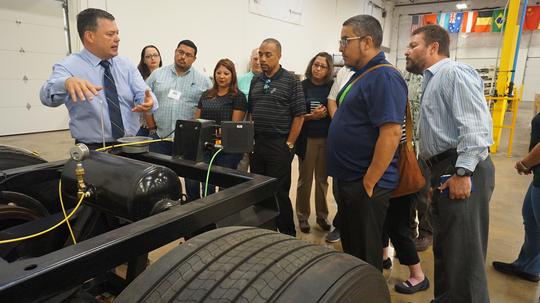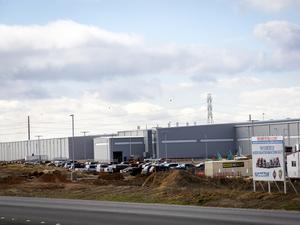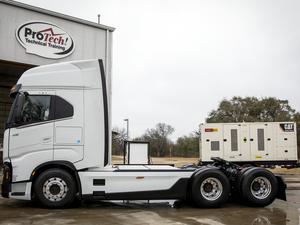
Manufacturing companies are facing growing challenges to recruit and retain a younger generation of employees.
One 2015 survey by the National Association of Manufacturers found that 80% of 18 to 24-year-olds found manufacturing to be a vital industry, yet ranked it fifth out of seven career options.
Cyndi Mergele, senior director at Human Capital Consulting, recently spoke at a San Antonio Manufacturers Association luncheon to an audience of more than 100 members about challenges facing companies seeking young talent — and what they can do to offset them. First, she said, manufacturing companies need to invest more in human resources departments, saying many companies see it as purely an administrative function instead of a necessary investment in resources to put the right people in the right jobs.
The younger generation are "kids that we literally put a tablet in their hands in the grocery cart when they were 2 years old," Mergele said, adding that when they apply for a job, they expect the hiring process to be efficient and responses to be timely.
Offering competitive pay and benefits and workplace flexibility is a must, Mergele said. While factory workers can't work remotely, more flexible attendance policies and work hours are crucial to attracting younger talent.
If manufacturers want to convince young people to consider an alternative path to college, then they need to make the experience, the benefits and the career development options more closely mirror those offered to college graduates, she noted.
Manufacturers also need to renew their commitment to diversity, Mergele said, since younger workers from historically marginalized groups want to know that they are welcome in the manufacturing space.
Companies also need to emphasize how the company can "upskill" workers and help them in their career, she added, and preferably explore different, more youth-centric routes than job fairs for promoting their company — such as social media.
Employee wellness and work-life balance is another priority Generation Z demands — as well as authentic and caring leadership, Mergele noted. And finally, manufacturers should consider recruiting for cultural fit for the company, not experience. The right employee can be taught — and opportunities to learn must be offered.
Rey Chavez, president of the San Antonio Manufacturers Association, said the Covid era in manufacturing is "a new era for everybody." He added that there's a difference in expectations between the older and younger generations — and the only way to resolve it is through better communication and collaboration.
"The bottom line is both need to be upfront and tell each other of their expectations," he said.
Mike McIver, vice president of manufacturing at Pressure Systems International in San Antonio, an automatic tire inflation system manufacturer, has 56 employees on the assembly floor, with 25 between the ages of 20 and 30. One way he has attracted younger talent is by not having rigid quotas. In response, a 24-year-old leader in the company recently produced 800 units — a 19-year high at the company.
He said he also encourages work-life balance to retain younger employees.
"Be kind ... and get your sleep," he said.








